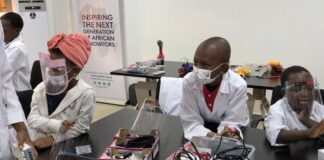The Risk Of Depression within Tech Industry
By Aroke Nazifi Muhammad
Over the years there have been various arguments that technology has contributed to the rise of depression especially amongst the GENZ generation, the debate has generated a lot of controversies regarding this consistent rise in depression.
However, this article is aimed at exploring the high rate of depression in the tech industry.
It is highly evident that transitioning into the tech industry is the current trend around the globe. This could be as a result of the fast career growth and competitive pay that come with sound career in tech industry.
According to survey from job site Indeed, 89% of people who transitioned careers into the tech industry did so to make more money. Despite all these good tidings associated with a promising career in tech, the tech industry has its own negative challenges which it poses. One amongst such challenges is depression.
The tech industry, is fast becoming a dynamic and ever-evolving industry. And this sums up the human effort, creativity and relentless pursuit of progress. It began from the early days of the silicon chip to the sophisticated world of artificial intelligence. The tech industry has redefined the dare to what is possible. This rapid progress can be traced to the economy and human daily activities. The tech industry has grown to become an integral part of the world’s economy.
Depression in Tech
Meanwhile, depression remains one of the most prevailing health disorders of the 21st century. It is defined as alterations in thinking, mood, or behaviours associated with distress and/or impaired function. It could be argued that depression has being existing as long as the existence of man.
As one of the leading causes of disability which is also projected to be the second most burdensome disease, depression has been found to be the strongest single risk factor for attempted or completed suicide.
Going further, depression in the tech industry happens to be one of the topics hardly discussed. Due to the inflow of people in the tech industry, mental risks such as Depression, Burnout, Anxiety, and Isolation associated with tech should become a trending topic. As an essential subject if it is neglected, it can affect the well-being and productivity level of people.
Read Also:
According to OSMI data, in the tech industry 51% of tech professionals have been diagnosed with a mental health condition while 71% of tech workers said their productivity is affected by a mental health issue. These are mental health challenges that can easily lead to depression. Also, becoming a tech pro can be quite expensive ranging from getting laptops, gadgets, and purchasing the courses that borders around tech. Unlike other soft skills, entering into the tech industry requires ample knowledge of specific systems and programs, which workers generally have to learn on their own such as programming, data analytics, coding etc., mastering these skills involves critical thinking, time demanding and repetition of various steps which can be challenging and exhilarating.
Similarly, the tech industry is notoriously known for its fast-paced work environments and its time bound feature in handling any task that involves speed to be able to meet up with deadline. Regardless of the loads and vigorousness of the tasks.
This can both be mentally and physically draining. Which is characterized by high-stress levels, overwhelming responsibilities, and repetitive tasks. All of which can lead to depression.
Broadly speaking, Insomnia and other sleep problems are often the critical challenges faced by a tech bro or sis (as they are fondly called), as they mostly deprive themselves of adequate sleep just to meet up with clients’ demands, crack certain codes among other tasks.
Unfortunately, insomnia increases the risk of developing depression.
As revealed by AMA study in 2012, constant exposure to artificial light even low-level light from computers and TV screens can throw off our circadian rhythms, causing depression and mood disorders. Excessive exposure to these devices can damage sleeping pattern because they emit blue light that restrains the production of melatonin, the hormone that controls your circadian rhythm also known as sleep/wake cycle.
In the Pursuit of Perfection…
In the tech industry, progress is often built on the mantra of innovation, perfection, and competition. These standards encourage tech professionals to consistently deliver exceptional results and surpass previous innovations. However, the pursuit of perfection and professionalism can lead to mounting pressures on tech professionals, resulting in the prevalence of impostor syndrome.
This syndrome causes individuals to doubt their accomplishments and fear that they may not meet the high standards of their tasks, which can further contribute to feelings of depression and negative self-evaluation.
Thus, the tech industry has become an integral part of our livelihood, the force behind our economic growths, this also comes with a greater challenge of depression. A stable mental health enhances good living.
Tech professionals and employers should prioritize a healthy condition of their mental health and that of their employees.
In conclusion, acknowledging and addressing depression within the tech industry is a bold move towards creating a healthier work environment, creativity, productivity, and long-term success. A mental health awareness will come in handy in encouraging open conversations, promoting work-life balance, and therapy sessions.




















